Collaboration Improves Water Productivity in Egypt
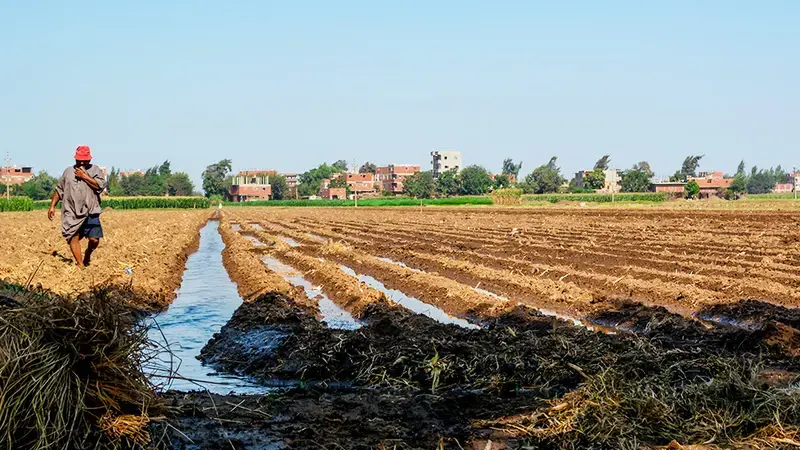
ICARDA is grateful to the Egyptian Government, the One CGIAR Excellence in Agronomy Initiative, the One CGIAR CWANA Initiative, FAO, the Arab Fund for Economic and Social Development (AFESD), and the European Union for funding this research. ICARDA would also like to recognize its partners, the Egyptian Agricultural Research Center (ARC) and the Egyptian Ministry of Agriculture and Land Reclamation (MARL).
---------------
By Dr. Vinay Nangia, Research Team Leader - Soil, Water, and Agronomy (SWA), and Dr. Mohie El Din Omar, Research Associate – Irrigation and Water Management.
With its 55.5 billion cubic meters of annual water allocation, Egypt's Nile River accounts for 98% of all available freshwater - 85% of which is captured by farmers to irrigate their crops. But a combination of population growth and worsening climate change conditions means that farmers' water needs exceed what the river can supply.
ICARDA's Soil, Water, and Agronomy (SWA) team of researchers supports farmers to transition, technically but also behaviorally, from farming conditions where water is no longer abundant – but increasingly scarce and precious.
Alongside our partners, ICARDA is working to enhance water productivity and higher 'crop-per-drop' efficiency by streamlining and improving irrigation methods, water systems, and technology.
- Rural Technology!
Precision agriculture is yet to be widely developed in the Global South. But ICARDA is already leveraging advanced digital and geospatial tools, big data analytics, machine learning, and artificial intelligence in its innovative water management approaches in Egypt and across the region.
Together with Egypt's Agriculture Research Center (ARC), ICARDA investigates the benefits of thermal imaging technology, which detects water stress in wheat, faba bean, and barley crops. Thermal imaging is highly reliable and helps with irrigation water scheduling – significantly reducing non-beneficial water depletions in newly reclaimed lands.
To assess a farm's Water-Energy-Food (WEF) performance, SWA has developed the Farm WEF Nexus Index to evaluate the quality of a farm's integrated resources management rather than the performance of each resource separately. This Index helps compare and rank farms based on their irrigation systems, agronomic practices, and energy efficiency. This indicator bases itself on four pillars: water, energy, crop yield, and CO2 emissions.
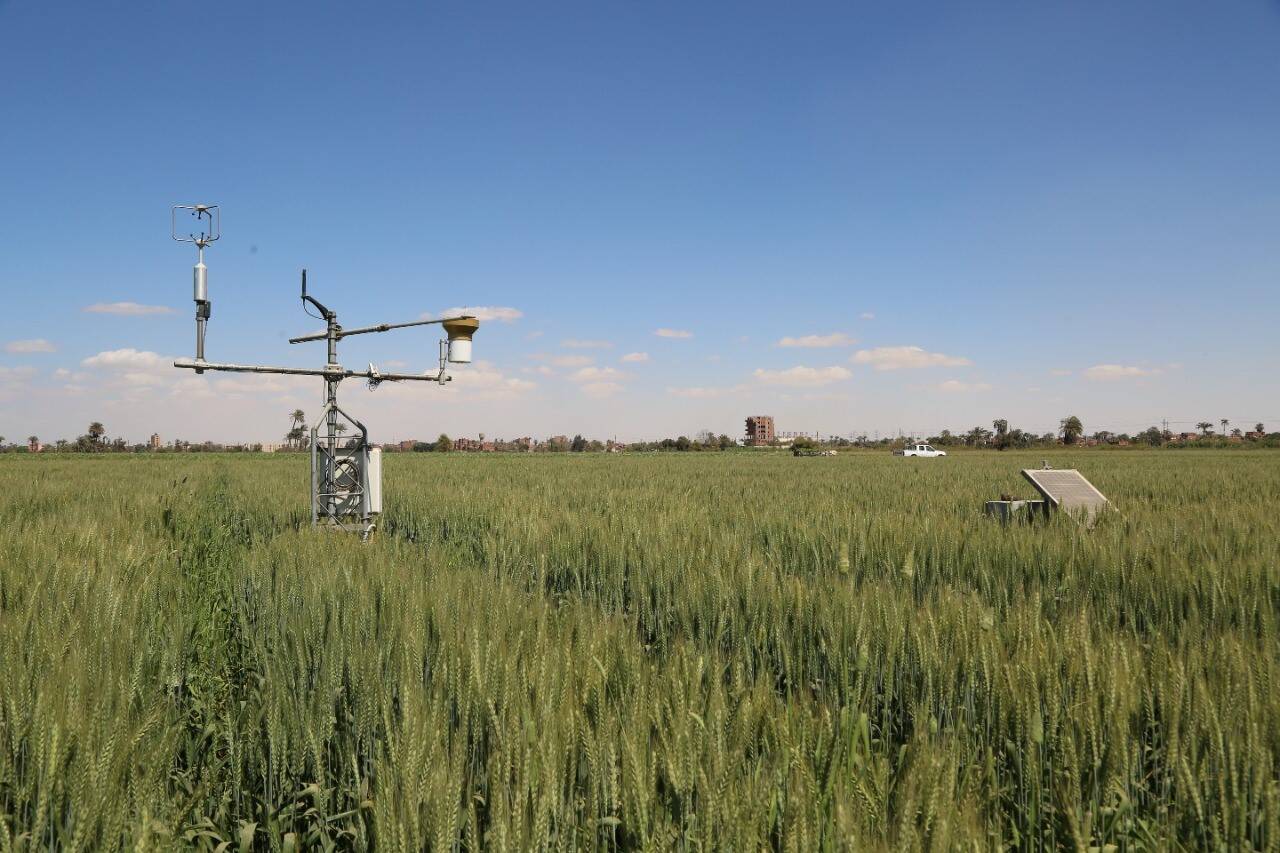
Across Egypt, high temperatures result in excessive soil and crop moisture evapotranspiration, leaving soils dry, brittle, and unviable. ICARDA's SWA team, with financial support from FAOs' Water Scarcity Initiative and in collaboration with ARC and five Near East and North Africa (NENA) countries, developed the NENA regional network for ET measurements.
The network builds a shared understanding and methodology of ET measurements in the field. It uses remote sensing technology to deliver accurate data assessments and translates this data for agriculture-related applications such as water accounting, water productivity, and water management. ICARDA manages the technical backstopping and quality control aspects in all six countries - ensuring high scientific standards.
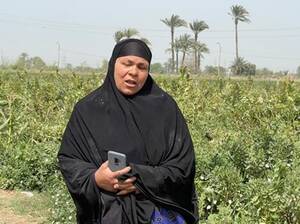
- More Crop per Drop
In dry countries such as Egypt, conserving precious water is essential for greater crop yields and improved farmer livelihoods. Since 2013, when ICARDA first introduced its flagship Raised-Bed machine in the East Delta province of Sharqeya, 112,000 farmers have used it across the country to dig furrows and raised beds on their fields in a quick and cost-efficient way.
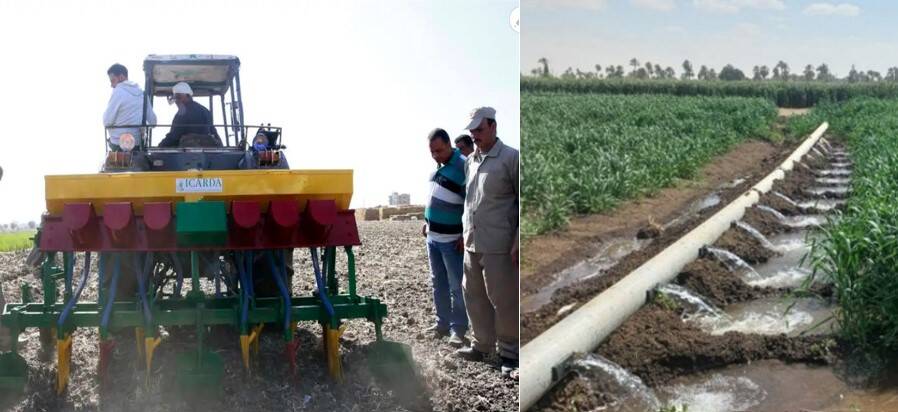
The MRB streamlined an ancient Egyptian practice of digging furrows and beds in the soil for higher water and crop productivity. The SWA Team has further improved this furrow irrigation system by installing low-cost gate pipes on-field - for even water distribution and reduced seepage losses.
The Nile Delta's intensive irrigation network consists of four types of irrigation channels: the primary canal runs continuously, branch canals receive water on a rotational basis, and tertiary (mesqa) and quaternary canals (marwa) are on-farm channels managed by farmers that serve land plots of three to five acres.
With the support of the European Union, ICARDA rehabilitated a nine kilometer–long stretch of marwa in Minya and Fayoum governorates to improve conveyance and water equity among farmers. This project will now be replicated in other regions of Egypt.
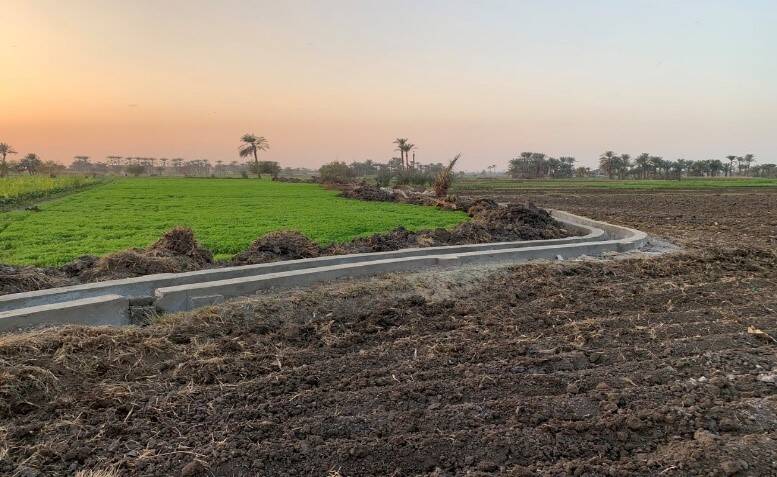
In Egypt, a typical marwa is less elevated than the field it irrigates, and farmers use diesel pumps to lift the water onto their lot.
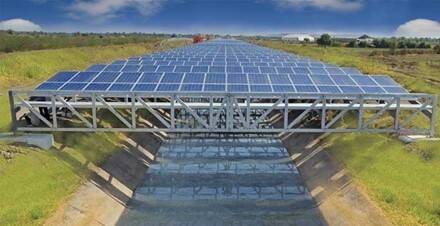
We also want to install solar panels directly above crops on-field. The benefits of that system are that shaded crops – less affected by scorching UV rays, will produce better yields, and the energy needed to activate the pumps will be renewable, locally accessible - and cheap.
In Egypt's Delta region, ICARDA and the International Water Management Institute (IWMI), as part of CGIAR's F2R-CWANA Initiative, work together on saline landscape management. In the governorates of Kafr-el-Sheikh and Port Said, both badly affected by high salinity rates, crop productivity is lower than expected.
As a response, we are identifying soil and water salinity hotspots to test the validity of our leaching method and modified cropping patterns. Leaching is the primary method of controlling soil salinity by applying large amounts of water to flush the excess salts accumulated at the crop's root zone.
Another identified technique to get rid of salt and improve crops and water productivity is to change the microtopography of farmlands by installing an internal network of canals and drains inside the field.
In Egypt, a typical farm lifts its water from an external canal on one side of the field ('before' in the graph). After irrigation, the water seeps into the soil and ends in an external drain on the other side of the field. However, this system does not efficiently remove the salt deposits in the soil since most of the infiltrated water collects in the upstream area of the field.
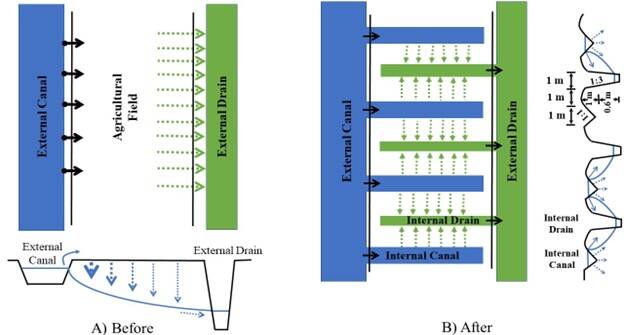
With our system ('after' in the graph), the water from the external canal is carried onto the field by a series of internal canals, surrounded by internal drains, before being discharged into the main external drain. This approach shows great promise to effectively leach salt-ridden farms, especially since it allows the water to move to the areas of the field where salinity is at its highest.
In Egypt, large tracts of land can be reclaimed for agriculture with solar-powered irrigation innovations. ICARDA's land-use priorities align with Egypt's strategic vision to expand innovative and cutting-edge irrigation systems across the territory. ICARDA plans to replicate its ultra-low solar-powered drip irrigation system that has been successfully scaled out in Morocco and the Arabian Peninsula in Egypt's Western Desert.
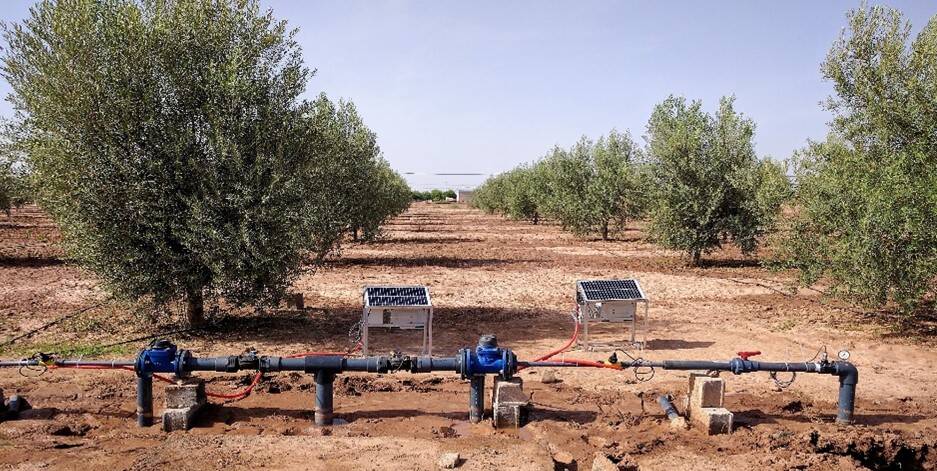
Lastly, in the water-deprived governorate of Matrouh on Egypt's North Coast, ICARDA is researching small-scale greywater treatment and reuse for irrigation to alleviate water shortages.
Greywater refers to the wastewater generated by household water - excluding toilet water. ICARDA's small-scale greywater filtration system enables household used water to be filtered and reused to grow olive trees and other crops in small fields within people's home environments.
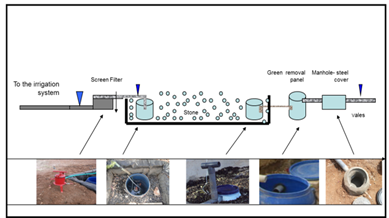
- Capacity building for improved irrigation and farming
To bring together fragmented parcels of land into one large farm and foster improved agricultural practices in Egypt, ICARDA prioritizes capacity building for farmers. Farmer field days demonstrate ICARDA's improved crop varieties and better farming practices.
ICARDA also designs training modules for various stakeholders (extension officers, farmers, etc.) to increase their knowledge of new farming technologies and methods. In addition, training videos and other materials are shared with farmers from cooperatives and water users' associations to train them in modern farming practices that will improve profits and reduce water use.
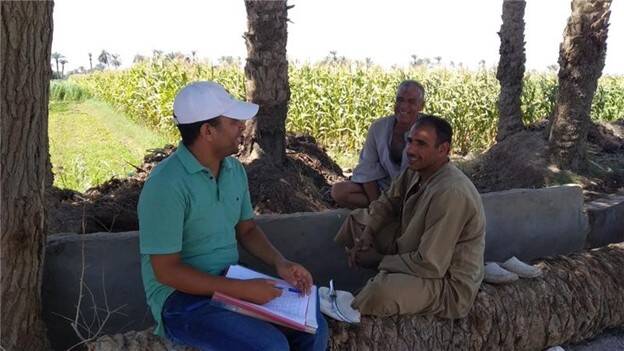
In parallel, ICARDA ensures the skills of tomorrow's experts are up to date by enrolling trainers, researchers, postgraduate students, advisors, technicians, young entrepreneurs, and champion farmers in continuous capacity-building programs.
-------------------------------
More on ICARDA's Soil, Water, and Agronomy (SWA)
-------------------------------
